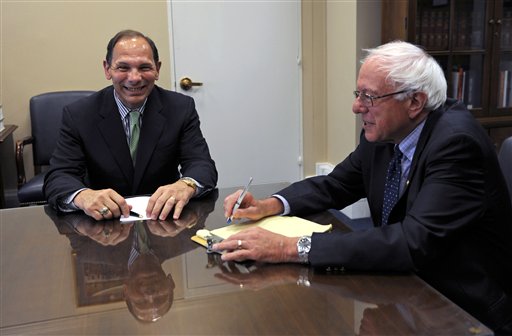WASHINGTON - A federal investigative agency is examining 67 claims of retaliation by supervisors at the Department of Veterans Affairs against employees who filed whistleblower complaints - including 25 complaints filed since June 1, after a growing health care scandal involving long patient waits and falsified records at VA hospitals and clinics became public.
The independent Office of Special Counsel said 30 of the complaints about retaliation have passed the initial review stage and were being further investigated for corrective action and possible discipline against VA supervisors and other executives. The complaints were filed in 28 states at 45 separate facilities, Special Counsel Carolyn Lerner said.
Lerner provided the figures in testimony prepared for a Tuesday night hearing before the House Veterans Affairs Committee. The Associated Press obtained copies of her testimony and other witnesses in advance.
Lerner said her office has been able to block disciplinary actions against several VA employees who reported wrongdoing, including one who reported a possible crime at a VA facility in New York.
The counsel's office also reversed a suspension for a VA employee in Hawaii who reported seeing an elderly patient being improperly restrained in a wheelchair. The whistleblower was granted full back pay and an unspecified monetary award and the official who retaliated against the worker was suspended, Lerner said.
In a related development, the VA said Tuesday it was restructuring its Office of Medical Inspector following a scathing report by Lerner's agency last month.
Acting VA Secretary Sloan Gibson said the department would appoint an interim director of the medical inspector's office from outside the current office and was suspending the office's hotline immediately. All complaints would be referred to the VA's Office of Inspector General.
The head of the medical inspector's office retired June 30 following a report by the Office of Special Counsel saying that his office played down whistleblower complaints pointing to "a troubling pattern of deficient patient care" at VA facilities.
"Intimidation or retaliation - not just against whistleblowers, but against any employee who raises a hand to identify a problem, make a suggestion or report what may be a violation in law, policy or our core values - is absolutely unacceptable," Gibson said in a statement. "I will not tolerate it in our organization."
Meanwhile, a doctor at the Phoenix veterans hospital says she was harassed and humiliated after complaining about problems at the hospital, where dozens of veterans died while on waiting lists for appointments.
Dr. Katherine Mitchell said the hospital's emergency room was severely understaffed and could not keep up with "the dangerous flood of patients" there. Mitchell, a former co-director of the Phoenix VA hospital's ER, said in testimony prepared for the House committee that strokes, heart attacks, internal head bleeding and other serious medical problems were missed by staffers "overwhelmed by the glut of patients."
Her complaints about staffing problems were ignored, Mitchell said, and she was transferred, suspended and reprimanded.
Scott Davis, a program specialist at the VA's Health Eligibility Center in Atlanta, said he was placed on involuntary leave after reporting that officials were "wasting millions of dollars" on a direct mail marketing campaign to promote the health care overhaul signed by President Barack Obama. Davis also reported the possible purging and deletion of at least 10,000 veterans' health records at the Atlanta center. More records and documents could be deleted or manipulated to mask a major backlog and mismanagement, Davis said. Those records would be hard to identify because of computer-system integrity issues, he said.

